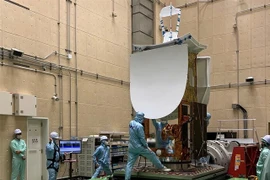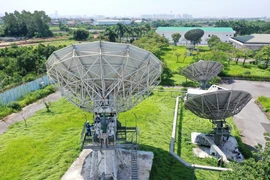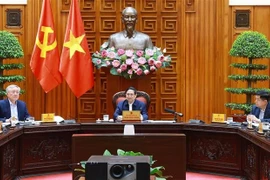Hanoi (VNA) – Deputy Prime Minister Nguyen Chi Dung has signed a decision granting approval for a controlled pilot programme to deploy telecommunications services using low Earth orbit satellite technology, which is set to be carried out by the US’s Space Exploration Technologies Corporation (SpaceX).
This pilot programme will not impose any restrictions on foreign investors regarding ownership percentages or capital contributions, according to recently-signed Decision No. 659/QD-TTg.
Specific details of the pilot include a controlled pilot investment in telecommunications services involving satellite network infrastructure using low Earth orbit technology in Vietnam.
The programme will adhere to national security and defence principles, with no restrictions on foreign ownership, in line with Resolution No. 193/2025/QH15 passed by the National Assembly on February 19, 2025 regarding pilot mechanisms and policies that foster breakthroughs in science, technology, innovation, and the national digital transformation.
The issuance of permits for the use of radio frequencies and equipment to telecom service providers using low Earth orbit satellite technology will also be piloted, replacing the previous method of granting permits for individual terminal device users as specified in Resolution No. 193/2025/QH15.
The pilot programme will end before January 1, 2031.
The decision clarifies that the pilot phase for providing telecommunications services using low Earth orbit satellite technology will last five years, starting from the date when a company established in Vietnam by the pilot organisation receives its business licence. This trial period must conclude by January 1, 2031.
It specifies that both the pilot organisation and the company established in Vietnam must ensure compliance with all requirements and conditions for implementing the trial. This includes stipulations regarding the types of services offered, the scope of deployment, the maximum number of subscriptions, frequency usage, and crucially, national defence and security considerations.
The services to be piloted nationwide will include fixed satellite services such as Internet access and leased channels for mobile station transmission, and mobile satellite services like Internet access at sea and on aircraft.
The maximum number of subscriptions permitted for the pilot phase will be 600,000, which includes the total number of subscribers for the services provided by the Vietnam-based company and those reselling the services through local telecom providers./.

See more
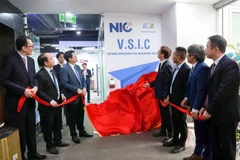
Vietnam Semiconductor Innovation Centre boots up in Hanoi
The launch of the VSIC shows a key commitment from FPT Corporation, NIC, and their partners to establish a sustainable semiconductor ecosystem in Vietnam, positioning the country as an attractive destination in this strategic industry.
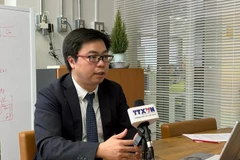
Resolution 57 to help Vietnam develop sustainably: Vietnamese intellectual in Japan
The Politburo’s Resolution 57-NQ/TW holds strategic significance as Vietnam needs to innovate its growth model, and improve labour productivity and competitiveness. It identifies science, technology, innovation and national digital transformation as the main driving force for socio-economic development, helping Vietnam escape the growth model based on cheap labour and resources, said Chairman of the Association of Vietnamese Intellectuals in Japan Dr. Le Duc Anh.
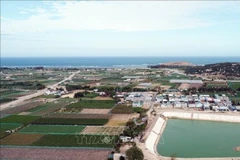
Vietnam ensures int’l commitments in nuclear power development
Vietnam, like other first-time nuclear power developers, needs to fully participate in international treaties on nuclear development, experts said.
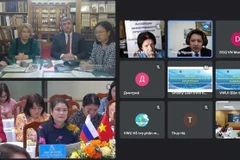
Symposium discusses ways to encourage women's engagement in science-technology
Tuyen stressed that the VWU has been carrying out practical activities to encourage women’s engagement in science and technology development, including promoting the establishment of the Vietnam Association for Intellectual Women, issuing a resolution on supporting women’s international integration by 2030, and launching initiatives like the Kovalevskaia Awards to encourage scientific research, innovation, startup and participation in digital economy and society among women.
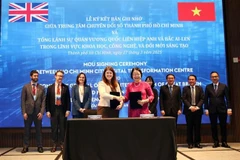
HCM City, UK strengthen partnership in digital transformation, innovation
Under the MoU, both sides will promote cooperation in research and innovation among policymakers, government agencies, research institutions, universities, and businesses to support digital transformation and drive technological advancements in the southern city.
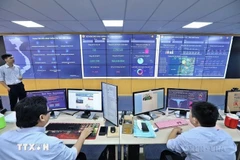
Politburo's science-tech resolution gives push to socio-economic development
Vietnam has set ambitious milestones, aiming to rank among the top three ASEAN countries in artificial intelligence (AI) research and development, digital competitiveness, and the e-government development index by 2030.
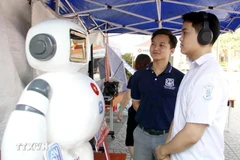
Russian expert hails Vietnam’s sci-tech development policy
Vietnam has chosen a right direction by setting the goal of making science – technology development, and innovation main driving forces for socio-economic development, said Dr. Grigory Trubnikov, Academician of the Russian Academy of Science and Director of the the Joint Institute for Nuclear Research (JINR) in Dubna (commonly known as Dubna Institute).

Vietnam harnesses AI to transform public services
The Government is accelerating AI application to reduce the paper workload and improve operation efficacy.

PM calls for nationwide digital literacy to empower citizens
PM Pham Minh Chinh tasked the Ministry of Science and Technology and the Ministry of Education and Training with developing a digital competency framework tailored to different groups, ensuring that civil servants, students, and workers alike have the necessary digital skills to work, learn, and engage safely and effectively in an increasingly digital world.
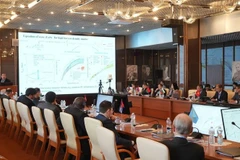
Vietnam, Russia hold promising scientific collaboration
Since 1982, when the Vietnam Academy of Science and Technology (VAST) became the official representative of Vietnam at JINR, the training of scientific personnel has been systematised, laying the foundation for the development of a high-quality scientific and technological workforce, playing a significant role in the country's renewal process.
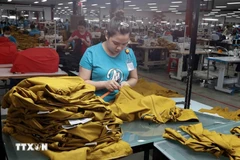
Vietnam poised for tech revolution: insights from Cambridge expert
Bang highlighted Vietnam’s advantages such as a young and tech-savvy population, steady economic growth, deep integration into global supply chains across multiple industries, and modern infrastructure like large airports and seaports.
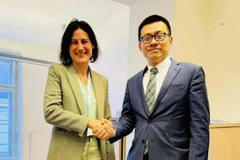
Vietnam, Austria explore cooperation in emerging technologies
Vietnam is highly interested in and wishes to strengthen partnerships with Austrian hi-tech companies, helping it make breakthrough in science, technology, and digital transformation, said Ambassador Vu Le Thai Hoang.
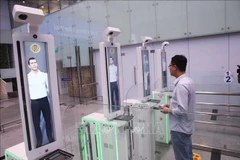
Preparations underway for biometrics, VNeID application at six airports
The biometric system is set for deployment at Tan Son Nhat between April and June, while at Noi Bai between March and September.
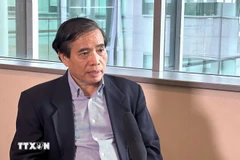
Expert taps Singapore’s model for Vietnam’s digital revolution
An expert from Singapore’s Lee Kuan Yew School of Public Policy has shared some of the city-state's experiences in how to promote science, technology, innovation, and digital transformation for national development.

Vietnamese-Australian engineer takes agriculture sky high with drone technology
The aeronautical engineer described the Politburo’s resolution on breakthroughs in science, technology, innovation, and national digital transformation as a bright spot, removing obstacles for both domestic and foreign technological talent to make contributions to the homeland.

Resolution 57 shapes way for Vietnam to become science-technology leader
The ambitious targets outlined in the resolution are based on both Vietnam’s current capabilities and its future development potential. However, achieving these goals requires breakthrough approaches to implementing science, technology, innovation, and digital transformation.
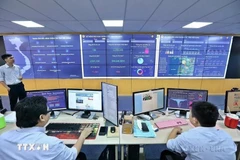
Expert sees resolution on national digital transformation as strategic move
The Politburo's Resolution 57-NQ/TW is will remove legal barriers to economic growth through science, technology, and digital transformation amidst the Fourth Industrial Revolution and the global digital economy.

Scientists in UK lauds Vietnam’s resolution on science, technology
Evaluating the significance of Resolution 57 in the current development phase, the scientists agreed that investing in science and technology is the right direction to create momentum for the country’s breakthrough development.

Report flags gaps in Vietnam’s AI push in public sector
A report funded by UNDP and conducted by the Institute for Policy Studies and Media Development (IPS) found that 87% of AI-integrated public sector projects remain dormant, while 70% of surveyed businesses and organisations rated their AI efforts as minimally effective.
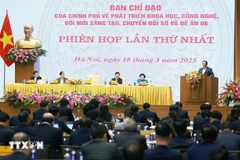
Prime Minister pushes for streamlined, data-driven government
Project 06 has shown tangible results, he said, highlighting the country has completed the issuance of 100% of chip-based citizen ID cards, activated over 61 million electronic identity accounts, and provided 40 utilities on the VNeID application. Online public services have been perfected, with 58 out of 76 essential online public services now available.
